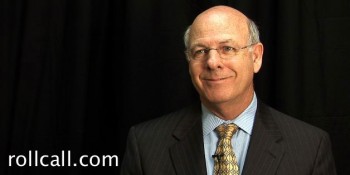I would’ve been content to let God’s Not Dead come and go from theaters un-commented-upon, but a movie that makes $33 million over three weekends demands a response. Mine is: ugh.
There is a moment early in the film that seems to perfectly encapsulate its worldview: a student, tasked by his abusive philosophy professor with proving God exists, includes in his PowerPoint presentation a slide with Michelangelo’s “Creation of Adam” painting. Something struck me as wrong with the image (mainly because I remembered this) and a quick Google search after the film assured me I was correct: Adam’s penis was gone, airbrushed out of the movie, along with any hints of sensitivity, intellectual rigor, or genuine struggle with faith.
I don’t even want to waste any more time trying to summarize the “plot” of this movie, which many reviewers have already compared to an adaptation of all those infuriating email forwards that well-meaning people sent you years ago. The story exists only to create moments in which Josh (Shane Harper) can refute Professor Radisson’s (Kevin Sorbo of the television series Hercules) increasingly bizarre attacks on religion. This probably shouldn’t have been surprising after the opening sequence credited an “apologetics researcher” as a member of the crew.
About halfway through, I began to wonder if God’s Not Dead takes place in an alternate universe. In that universe, “gotcha” reporters are offended that the Duck Dynasty family hunts and prays — not that they spout antiquated remarks about homosexuality; professors are free to date students currently taking their classes (!); Chinese exchange students speak to their parents in Cantonese but text them in English; minorities exist only as potential converts or awful tropes; men and women get into long-term relationships without realizing the people they’re dating are monsters.
But those are fairly trivial concerns and, in the end, it’s obvious the producers aren’t trying to create a sci-fi vision of another corner of the multiverse — they think what they’re showing us is a reflection of reality. They perceive America as a place in which Christians are part of a dwindling group whose persecutors lurk around every corner.
This is the state of affairs that Fox News commentators often describe to their viewers, despite recent polling showing 74 percent of Americans identify as Christian and despite news of actual persecution of Christians elsewhere in the world. This is the world that Sen. Ted Cruz lives in, saying that, due to the Affordable Care Act, “religious liberty has never been more under attack” in a speech at the ultra-conservative Liberty University. In the world depicted in this movie, Christians are blind to the many, many privileges they receive and instead focus all their energy on utterly trivial slights.
What’s worse, God’s Not Dead shows us very little about what it means to be a Christian. If an alien civilization were given only this film and then asked, “What make someone a Christian?” they would likely respond, “Intellectual assent to the proposition that God exists — and going to Newsboys concerts” (or however they’d say it in alien). They might also mention prayer, because people in the film talk about it fairly often, but there’s only one really memorable prayer in the film, and its purpose is to convert someone to Christianity. There is never a genuine attempt at communion with the divine and there is very little concern with helping one’s neighbor (unless you count telling them that God exists) — the two things Jesus said were most important.
Also absent from the movie is any genuine struggle. Josh certainly takes some risks by accepting the professor’s challenge: he may lose his girlfriend (he’s better off without her) and his future career as a lawyer is somehow in jeopardy (although he is in his first semester of college), but the decisions he makes are never really difficult. Unlike the main character in Noah, Josh is certain that he’s choosing the right path at every fork in the road.
Another of the characters [spoiler alert] is a Muslim who secretly converts to Christianity and, in a disgustingly bigoted scene, is beaten and thrown out of her home by her father. A student from China is inspired to talk about God with his father, who shuts down the conversation and tells him to listen to the professor. But don’t worry — the next day they are both rocking out at the aforementioned Newsboys concert. Aside from these racist stereotypes, there are several other characters who, in the course of the movie, decide to believe in God (and go to that damn concert!), and yet, for the life of me, I can’t explain why. They just … do. The writers chose to spend all their time crafting arguments instead of characters.
This inability to recognize people as people is not just bad film-making, it’s antithetical to Christianity. (I am an ordained Christian minister as well as a flawed person, so please forgive me for the preaching you’re about to read.) My faith means nothing if it doesn’t connect with real-life, flesh-and-blood human beings — people who’ve experienced pain I can’t imagine and who draw strength from beliefs I can’t begin to comprehend. I will have failed in my calling to love my neighbors if I see them only as drones to be assimilated to my way of thinking.
Instead, I must seek “not to be understood, but to understand.” I have to work out my faith with fear and trembling. I have to care for the “least of these” by working to provide food and water, welcoming strangers, clothing the naked, and caring for those society deems unworthy. I really need to go volunteer at a Habitat for Humanity work site, or a homeless shelter, or a soup kitchen.
At the very least, I have to start seeing better movies.



